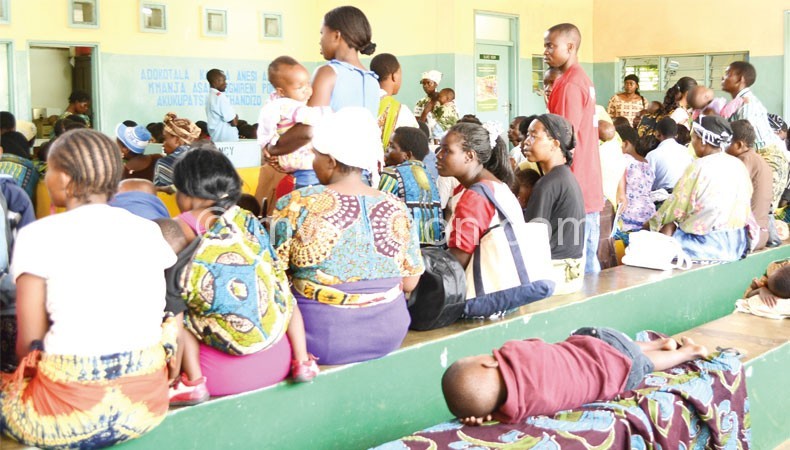Countdown to IMF’s June verdict
As the next review of the country’s programme with the International Monetary Fund (IMF) approaches in March, economic analysts think government may not have done enough to meet the revised targets.
In its previous review in September last year, the IMF mission noted that government had not resolved other economic aspects; hence, pended the conclusion of the Ninth review of the three-year Extended Credit Facility (ECF) to June this year to give government enough room to work on the programme’s shortfalls.
Specifically, the mission led by Oral Williams asked government to look into its public expenditure, net domestic assets, net foreign assets and sustain public finance management reforms such as reconciling government bank accounts to restore trust in the national budget.

Government was also advised to encompass policies to maintain tight fiscal and monetary policies to reduce inflation and interest rates and ensure medium-term fiscal sustainability.
Ministry of Finance, Economic Planning and Development spokesperson Alfred Kutengule had not responded to our questionnaire at the time of going to press, but a Treasury source, who was upbeat on the outcome of the review, said the mission is expected in the country in early March.
He said: “We stand a chance that our outcome will be good. Government has focused on structural reforms, particularly public finance management reforms.
“As you are aware, ministries now submit monthly reports as one way of tracking expenditure so there is not much fiscal pressure.”
However, the official noted that the current maize procurement issues and the net foreign assets (NFA)—the value of the assets that the country owns abroad minus the value of domestic assets owned by foreigners—could pose a risk.
On the maize issue, there have been allegations of underhand dealings in the way the State produce trader Admarc bought maize from Zambia, which some critics argue smacks of corruption.

Said the official: “Admarc [Agricultural Development and Market Corporation] borrowed on the understanding that they would be able to recover from the sales, but then at K12 500 per 50 kilogramme bag, not many people are going to buy from Admarc because it seems people have alternative sources.
“As the situation stands, Admarc may just sell the maize at a loss or central government could inherit the debt, a situation that is also tricky.”
He noted that with regards to net foreign assets, as at the close of the 2016, they were still heavy but was hopeful that this does impact on the review.
But University of Malawi (Unima) economics professor Ben Kaluwa, in an interview on Tuesday, said there is still more work to be done if government is to meet IMF targets.
However, he commended government for making efforts to retain the economy in line with IMF requirements such as taming interest and inflation rates at the end of the just ended year, but noted the country is still far from healing from the economic wounds.
The Reserve Bank of Malawi (RBM) reduced the policy rate or bank rate by three percentage points from 27 percent to 24 percent in November last year owing to reduction in inflation which has been easing for the past four months.
Inflation rate is currently at 19.9 percent as of November 2016, according to the National Statistical Office (NSO), largely due to the dropping in the price of food, particularly maize.
Said Kaluwa: “Inflation may have come down, but we all know why this is the case. Our inflation is largely driven by food prices, maize in particular, but government imported maize which in turn has created another gap because as we speak there is controversy on how we will handle that.
“Sustainability of such issues on the other hand, remains an issue. The question is whether government going to sustain the lowering of the policy rate and inflation rate going forward.”
On his part, Catholic University head of economics department Gilbert Kachamba foresees narrow chances for the country to be in line with the IMF targets.
He said in an interview on Tuesday the reforms, which were among the key issues that the IMF highlighted in the previous review mission, have stopped, adding that inflation and interest rates have on the other hand remained high.
He said: “In most if not all scores, we are poor. We have failed to control inflation just as interest rates. Looking at public reforms, there is little progress as public services leave a lot to be desired.”
IMF country representative Jack Ree declined to comment on the upcoming review, saying it will be based on Malawi’s macroeconomic performance as of December 2016, particularly on fiscal and monetary policy side for which the relevant data is yet to come out.
He said: “The focus at present is assessing how we did in December. I remain cautiously hopeful, but we simply don’t know the outcome. As we are dealing with the water under the bridge, we also cannot change its course either.”
The ECF is an IMF lending arrangement that provides sustained programme engagement over the medium to long-term.
The programme is aimed at achieving and maintaining macroeconomic stability and implementation of policies and structural reforms to spur growth and diversify the economy. n





